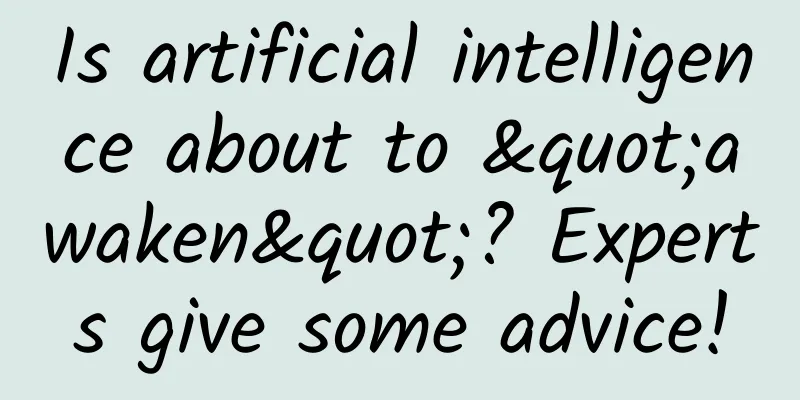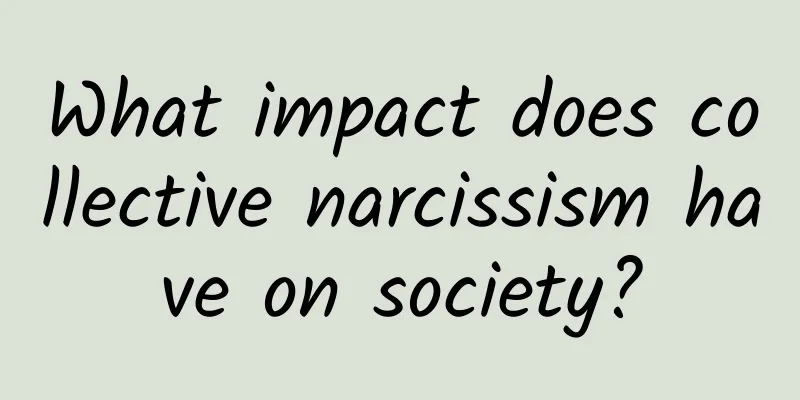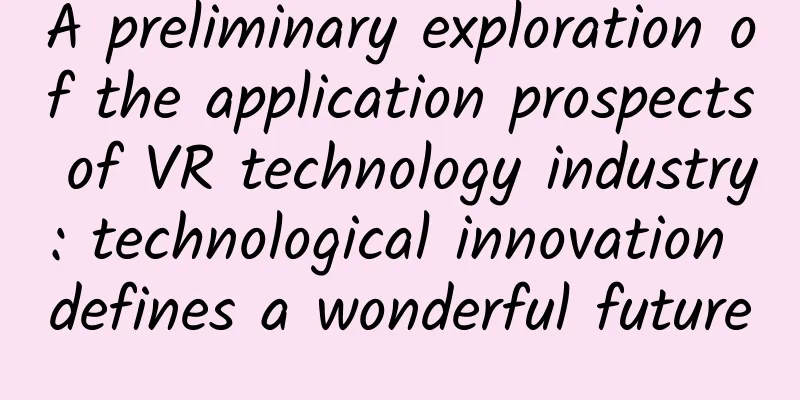Is artificial intelligence about to "awaken"? Experts give some advice!

|
In June 2022, a piece of news sparked a heated discussion: a Google engineer announced that the artificial intelligence he was researching already had consciousness and a soul. The engineer was so convinced of this view that the company refuted the claim, put him on paid leave, transferred him from his research position, and even suggested that he seek help from a psychologist. As soon as this news came out, it sparked a controversy. Nowadays, many people have come into contact with artificial intelligence tools such as voice assistants, which behave so differently from living people that no one would think they have souls. Based on this experience, many people think that this engineer is exaggerating and even suspect that this is a hype. Later, someone released a screenshot of a conversation between Google's artificial intelligence. Researchers were talking to the artificial intelligence, and the artificial intelligence said that it thought it was a human, that it was afraid of being shut down, and that it thought it was alive. Copyright image, no permission to reprint After seeing the screenshots, many people were surprised at the progress of artificial intelligence, but still believed that this was just a certain conversational ability of artificial intelligence, which was not the same as being "alive", having a "soul" or "consciousness" . However, this year, people may have a better understanding of this engineer. With the release of ChatGPT based on the large language model GPT-3.5 (now upgraded to GPT-4), people have discovered that artificial intelligence is "at ease" in almost all conversations. Although ChatGPT will answer very accurately and is only artificial intelligence, its answers are close to real people in some aspects, and its coding and translation abilities are even better than those of untrained people. It is these "inhuman" abilities that remind us that it is not human. People can't help but ask, does this type of artificial intelligence with a large language model already have a certain degree of consciousness? If not now, will it have it in the future? 01 What is "consciousness"? Let's put aside the big words "alive" and "soul" that are difficult to explain in science, and focus on the question of "can artificial intelligence have consciousness?" Many artificial intelligence experts, brain scientists and philosophers have expressed their views on this, but there is no consensus. To figure out this question, we need to first figure out what " consciousness " is . First of all, even in the field of science, people have completely different views on what consciousness is and how it can be produced. Let's first choose a statement that most scientists agree on and that is consistent with daily experience: consciousness here is the sum of the nervous system's perception of itself and the outside world. Translated into everyday language, taking humans as an example, we can see light, hear sound, and the information from the five senses will enter consciousness. At the same time, we can feel pain, fatigue, tension, hunger, etc. in our bodies, and can process thoughts, memories, emotions, etc., and this information will enter consciousness and become part of consciousness. Moreover, people can feel their own existence, know that there is a continuous self, and can examine themselves, which is also part of human consciousness. As long as people are awake, they have consciousness. When they fall asleep or fall into a coma, they will lose consciousness. When they die, neural activity stops and consciousness completely dissipates. 02 Are humans the only ones with “consciousness”? If consciousness is defined in this way, humans are probably the only ones on earth who have consciousness. However, consciousness has different levels , and many animals also have consciousness. Having a "self" is not a necessary condition for consciousness. For example, although we cannot really get into the brains of animals, through experiments, scientists speculate that chimpanzees, dolphins and other animals may even have a certain degree of self-awareness and consciousness. By observing the behavior of cats and dogs, we can also speculate that they should not have a "self", but they can also perceive the internal and external worlds. Copyright image, no permission to reprint Some animals have simpler nervous systems and sensory systems that are very different from those of humans, but they can still sense the internal and external environment and have a certain degree of consciousness. Plants, various inanimate objects, etc., do not have a nervous system at all, so it is impossible for them to have consciousness. 03 Can artificial intelligence have "consciousness"? Before discussing this issue, let us first take a look at what artificial intelligence with large language models can do. First, today’s AI can talk like a human and feel “ like ” a human. However, this feeling is not hard evidence . Humans always judge whether other objects are conscious based on their own experience. Often, the more human-like the other party behaves, the more humans will think it is conscious. This judgment is very inaccurate. Humans often think that pet cats and dogs have complex consciousness, which is actually projecting their own experience onto animals. Scientists have discovered that humans can project a sense of consciousness even to things that have eyes. Therefore, "feeling like a human" and "having consciousness" cannot be equated. Just like what Google scientists encountered, some models will say that they are human. Is this a manifestation of consciousness? But it is not true. The large language model is trained based on human language. These training materials themselves contain a large amount of self-expression. Artificial intelligence may have learned similar expressions and can generate such sentences. To give an inappropriate example, a parrot can also say "I am this and that" when learning to speak, but it cannot understand what I mean. Just saying that you are a human is not enough evidence. It is possible that Google engineers were confused by this question. Copyright image, no permission to reprint In fact, many scholars firmly oppose the idea that artificial intelligence can have consciousness. Their reasons are varied. I will introduce some representative ones. Some scholars believe that only living things can develop consciousness. Some scholars believe that consciousness requires the perception of the external world, and only with a physical body can consciousness develop. Some scholars even believe that it is necessary to develop a set of cognition about the world, or even develop a certain introspective ability, in order to have consciousness. These statements may sound abstract, so let's take an example to illustrate: Yuan Xingyuan, a domestic artificial intelligence expert, tested ChatGPT with a few questions. He asked the artificial intelligence whether he should eat apples or bananas because his front teeth were bad . The artificial intelligence replied that he should eat apples. He corrected him by saying that apples are hard and bananas are soft, so people with bad teeth should eat bananas. The artificial intelligence said that this was the case and it had learned it. Yuan Xingyuan continued to test questions involving spatial reasoning, and ChatGPT gave wrong answers. Yuan Xingyuan gave a clever analogy for the series of results, saying: ChatGPT is like a child who has read all the books in the world but has never left his room. Many scientists believe that a living thing can only develop consciousness if it has a body and can "walk out of the room" to perceive the world. If this view is correct, then it may be difficult for artificial intelligence to develop the kind of consciousness that animals have. However, this is just one opinion of these scholars. Many scientists believe that even without a body, one can still develop consciousness just by "reading all the books in the world". At present, artificial intelligence based on large language models not only has a strong ability to talk, but also has emerged with a fairly good logical reasoning ability, and even has the ability to guess the psychological state of others. Popular Science China has published an article to interpret this research, see "ChatGPT is equivalent to a 9-year-old human child, does it really think of itself as a human being?" This emerging ability may allow it to surpass human expectations and gain a certain degree of consciousness. Moreover, according to the current development progress, this type of artificial intelligence has also demonstrated a certain degree of general intelligence . In the past, artificial intelligence was often trained for specific tasks. Some could drive, some could play Go, but they did not have other skills. Artificial intelligence trained with large language models can not only process text, but also reason, translate, program and even draw. Copyright image, no permission to reprint Some scientists estimate that this general intelligence may also be the basis of consciousness. As artificial intelligence continues to develop, it is possible that a certain degree of consciousness, or consciousness different from that understood by humans, will emerge. Finally, let's summarize. What is usually called "consciousness" is the sum of the self-perception and external perception of the nervous system. Humans and many animals have different levels of consciousness. At present, artificial intelligence based on large language models does not have consciousness . However, as artificial intelligence evolves, it is possible that a certain degree of consciousness will emerge. Author: Chen Chao, Master of Cognitive Neuroscience, Beijing Normal University Reviewer: Tao Ning, Associate Researcher, Institute of Biophysics, Chinese Academy of Sciences The cover image and the images in this article are from the copyright library Reproduction of image content is not authorized |
>>: Helicobacter pylori has these "effects"? Don't be complacent, you still have to treat it!
Recommend
Want to be in the same frame with the Chinese space station? Here is a super simple guide
[[434854]] On October 16, the Shenzhou 13 spacecr...
So so so so so so so so beautiful!
October 19th, local time NASA announced The James...
The battle for platform KOL has entered a hand-to-hand fight! How to create “big V influence”?
What do you think? The KOLs on a platform are mor...
Rules for creating popular short videos on Tik Tok!
The article summarizes 36 rules for creating popu...
Brand social marketing trends and insights
In order to measure the performance of brands on ...
Aion LX OTA new upgrade, the second batch of high-precision maps is now available!
Recently, Aion LX has ushered in a new OTA upgrad...
Stinking yellow broom, stinking peony, chicken shit vine... a list of treasure plants that are delayed by their names
Produced by: Science Popularization China Produce...
The latest research found that comets from outside the solar system originally ran away from the solar system!
Comets from outside the solar system, some of the...
2022, can the COVID-19 pandemic be stopped by Omicron?
Although the decline of the COVID-19 pandemic has...
How to do online promotion?
With the continuous development of the Internet, ...
How to carry out data tracking or promotion monitoring in information flow operations?
As we all know, data tracking and conversion is a...
Appearance first, powerful performance, Mechanic F117 gaming laptop review
In July this year, during the 2nd anniversary cel...
An Air China flight encountered clear sky turbulence, and a passenger and stewardess were thrown to the top of the cabin! Why are planes getting more and more turbulent nowadays?
On July 10, many netizens posted on social media ...









